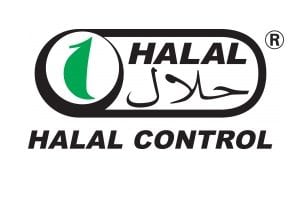Rüsselsheim: The Gulf Cooperation Council Accreditation Center (GAC) has granted HALAL  CONTROL one of their first formal accreditations for Halal certifiers.
CONTROL one of their first formal accreditations for Halal certifiers.
Therefore European food, beverage, ingredients, pharmaceutical, and cosmetic industries certified by HALAL CONTROL will now meet the regulatory requirements to be able to export their products in any one of the six member states of the Cooperation Council for the Arab States of the Gulf (GCC) including Bahrain, Qatar, Kuwait, Oman, Saudi Arabia, United Arab Emirates, and also in the Republic of Yemen.
 In addition, they also registered their new accreditation with the Emirates Standardization and Metrology Authority (ESMA) guaranteeing HALAL CONTROL’s Halal certification in the region.
In addition, they also registered their new accreditation with the Emirates Standardization and Metrology Authority (ESMA) guaranteeing HALAL CONTROL’s Halal certification in the region.
From a European perspective, GCC states represent an important sales market. The value of agri-food products exported in these countries alone sums up to 7.8 billion Euro, constituting 6.4% of total EU agri-food exports. Thus, the GCC states are the third-largest importer of the European Union in this segment. Accordingly, both sides have a high interest in clearly defined rules regarding food safety and HALAL conformity, meaning strict adherence to Islamic dietary and purity requirements.
In the course of the GAC accreditation, HALAL CONTROL had to prove that its certifications meet the requirements of the UAE-S/GSO 2055:2 standard. This Halal standard published by ESMA in 2014 includes the requirements of the relevant international standards like ISO/IEC 17065, ISO/IEC 17021, and ISO/IEC 19011. The now obtained accreditation, after a one-and-half-year process, complements the already existing accreditations of the other international leading Halal authorities JAKIM Malaysia, MUI Indonesia, and MUIS Singapore.
“Our Halal certifications have always been readily accepted in any country,” states Dipl.-Ing. Mahmoud Tatari, CEO of HALAL CONTROL. “The official accreditation procedure with its transparent criteria helps to resolve any remaining uncertainties. Therefore, our certified customers will continue to have access to the complete international Halal market.”
In addition to the Gulf states, Halal standards for the fields of industry, trade and consumer protection are relevant to all 57 Islamic countries forming the Organization of Islamic Cooperation, OIC. Together they represent a profitable growth market comprising about 1.6 billion consumers.



